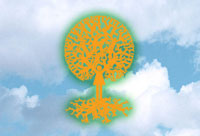
Some make change by using old tools – growing mushrooms or training bakers – other redesign the standard business model in order to change the world.
Last week, I described the innovations of two of the Utne Social Ventures Network 2010 Innovation Award winners who are using the basics to change lives. Now let’s look at tweaking the business model.
Green For All is all about not standing around waiting for someone else to lay the groundwork for the project you want to do. They just step up to the plate and do it all, from advocacy for new legislation to developing a “green” workforce to implement that legislation. Moreover, they train leaders from low-income communities to educate and create demand in those communities, and to participate in nationwide awareness projects. And they partner with colleges to keep the stream of demand and leaders flowing.
It’s a soup-to-nuts approach that includes coaching, networking, sharing resources … if it’s about greening the neighborhood, Green For All probably has done it or knows someone who has.
Sungevity is taking on the biggest obstacle homeowners face when considering solar – upfront cost. The company offers a Solar Lease, which reduces the upfront cost and still allows tax credits. The lease also comes with ongoing support and maintenance. With the economy tight, that upfront installation cost is a deal-breaker but reduced energy bills – Sungevity claims that lease payments plus electricity costs will be less than current electricity bills – is a winner.
I love the graphic that explains the Komaza business model. It’s a pyramid, with stick-figure field directors driving pickup trucks at the tippy top and a broad base of stick-figure facilitators on foot. That says it all: Komaza trains people in local villages to plant and maintain short- and long-term crops on arid land in Kenya. Seeds for the trees are given to villagers along with training in finance, marketing, and sustainability.
Multiple rural cells of villagers provide trees to a central tree processing facility. Part of the farmers’ profits goes back to Komaza to fund more seeds for other farmers, as well as to run the organization, which is staffed at all levels by Kenyans. Most of the work is done at the village level by people who walk to their tasks while a few company leaders travel larger distances between rural cells in those pickup trucks.
In three years, Komaza has brought about 1,000 farmers into the network and planted almost 278,000 trees. In a world in which the news is mostly deforestation, that’s good news, indeed.
The commonality of these and the other nonprofits honored by SVN is empowerment. They all give individual people, whether bakers, mushroom-lovers, farmers scratching out a living from dry land, or suburbanites the power to improve their lives and the planet.
You, too, can save the planet, with mushrooms on the windowsill or solar panels on the roof; by buying bread that enriches the world, not just your stomach; or by donating money for a new tree farm in Kenya.
It’s like chipping away at an iceberg, I know. Lots of ice still there but, you know, if we all start chipping every way we can …. goodbye iceberg!
(And by the way, wouldn’t your office like to spend $300 on that tree farm rather than have Secret Santas this year?)
Do you think you do your part to save the planet? Is there a business or nonprofit that particularly helped you do more? What business would you like to see in an ideal world?
